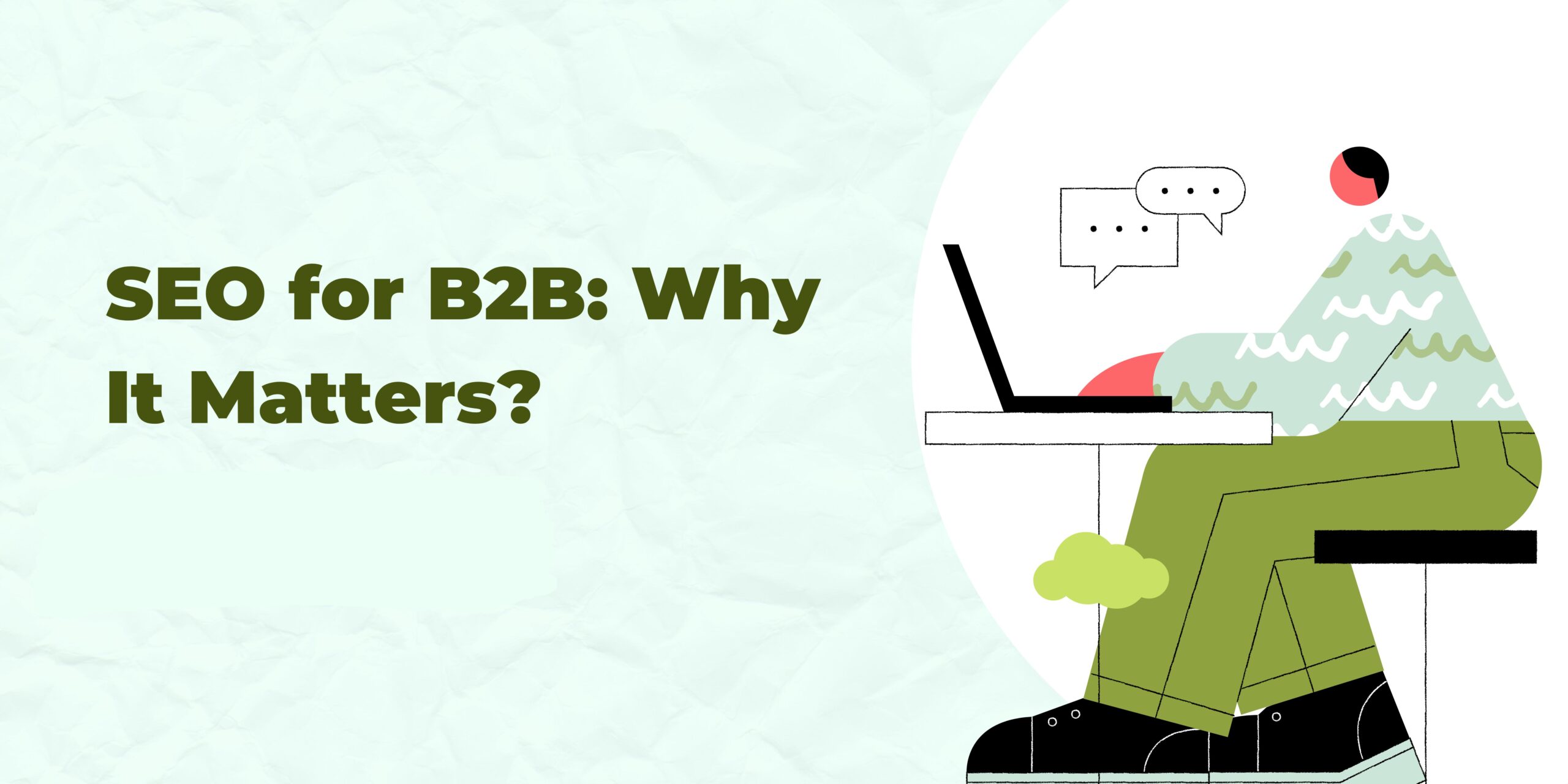Search Engine Optimization (SEO) is essential for any business, but it holds special significance in the B2B (Business-to-Business) space. In a B2B model, businesses target other businesses, not individual consumers. SEO helps businesses increase visibility online, making it easier for potential clients to discover their products or services. In this article, we’ll explain why SEO matters in B2B, how it differs from B2C, and the key elements that make it successful.
What is B2B SEO?
B2B SEO focuses on optimizing a website to attract and engage other businesses. The goal is to improve a website’s ranking on search engines like Google, Bing, or Yahoo when other businesses search for relevant keywords. B2B SEO aims to bring long-term results by driving more targeted traffic and converting this traffic into leads or customers.
Why is SEO Important for B2B?
- Increased Visibility Businesses rely heavily on search engines to find the products or services they need. By optimizing your site, you increase your chances of being found by potential clients. A strong SEO strategy ensures your website ranks higher in search engine results, leading to more visibility, more traffic, and more leads.
- Building Trust and Authority Ranking high on search engines gives businesses more credibility. When your site appears in the top search results, it shows potential clients that your business is reliable and trustworthy. SEO helps build this trust over time, particularly if your content provides useful and valuable information to your audience.
- Cost-Effective Marketing Unlike paid ads, SEO provides long-lasting results with lower costs. Once your site ranks well, you don’t need to pay for every click, as you do with Pay-Per-Click (PPC) advertising. This makes SEO an affordable option for businesses looking to generate long-term, organic traffic.
- Targeted Traffic SEO targets specific keywords and phrases relevant to your industry, ensuring that the traffic you attract is more likely to be interested in your offerings. This leads to higher conversion rates since the visitors are already looking for what you offer.
- Long-Term Results SEO is a long-term strategy. While it takes time to see significant results, the payoff is consistent. Once your site ranks well, maintaining that ranking requires less effort, and you’ll continue to reap the benefits for a long time.
Differences Between B2B and B2C SEO
While both B2B and B2C SEO aim to improve visibility and attract traffic, their strategies differ in several ways.
1. Target Audience
B2B targets businesses, while B2C (Business-to-Consumer) targets individual consumers. In B2B, the purchasing process is more complex and often involves multiple decision-makers. This means the content needs to address the pain points and solutions for business problems rather than just appealing to individual desires.
2. Search Volume
B2B keywords tend to have lower search volumes compared to B2C keywords. However, these keywords are often more targeted, meaning that even with less traffic, the chances of conversion are higher.
3. Content Length and Detail
B2B buyers typically require more detailed, in-depth content to make informed decisions. This means that B2B SEO often involves creating comprehensive blog posts, white papers, case studies, and other content that goes deeper into industry-specific topics.
4. Sales Cycle
The B2B sales cycle is longer and more complex. Therefore, SEO strategies need to focus on different stages of the buyer’s journey, from awareness to decision-making. In contrast, B2C SEO often focuses on immediate conversions or impulse purchases.
Key Elements of a Successful B2B SEO Strategy
A successful B2B SEO strategy involves several key components that work together to improve a website’s visibility and attract the right audience.
1. Keyword Research
Keyword research is the foundation of any SEO strategy. For B2B, it’s essential to identify the keywords that your target businesses are using to find products or services like yours. Focus on long-tail keywords that are specific to your industry, as these are more likely to attract relevant traffic.
2. Content Marketing
High-quality, informative content is crucial for B2B SEO. The content should address the pain points and challenges faced by your target audience. Blog posts, white papers, and guides are popular formats in B2B because they provide detailed information that helps businesses make informed decisions.
3. On-Page Optimization
On-page optimization involves improving the elements of your website that affect your search rankings. This includes using the right keywords in your titles, headers, and meta descriptions, optimizing images, and ensuring your website is mobile-friendly.
4. Technical SEO
Technical SEO focuses on improving your website’s structure and performance. Factors such as page speed, mobile-friendliness, and site security (HTTPS) play a crucial role in how search engines rank your site. A well-optimized website is easier for search engines to crawl and index.
5. Backlink Building
Backlinks from reputable websites can boost your search rankings. In B2B SEO, building relationships with industry leaders and getting backlinks from authoritative sources is essential. These backlinks act as a vote of confidence from other businesses, showing search engines that your site is trustworthy.
6. Analytics and Tracking
Monitoring the performance of your SEO strategy is key to success. Use tools like Google Analytics to track your website traffic, conversion rates, and keyword rankings. This data will help you adjust your strategy and improve over time.
Conclusion
SEO is vital for B2B businesses because it helps them attract targeted traffic, build authority, and generate long-term, cost-effective results. A successful B2B SEO strategy involves careful keyword research, high-quality content, and ongoing optimization. By investing in SEO, businesses can improve their visibility, build trust with potential clients, and ultimately drive growth. Using B2B SEO tools can help streamline the process, ensuring your SEO efforts are effective and sustainable in the long run.
FAQs:
1. Why is SEO important for B2B businesses?
SEO is crucial for B2B businesses because it helps improve visibility in search engine results, making it easier for potential clients to find them online. It builds trust and authority, drives targeted traffic, and provides long-term, cost-effective marketing benefits. SEO is especially important in B2B as the sales cycle is typically longer and more complex, requiring businesses to maintain a strong online presence.
2. How is B2B SEO different from B2C SEO?
B2B SEO differs from B2C SEO in several ways. B2B focuses on targeting businesses, while B2C targets individual consumers. B2B keywords usually have lower search volume but are more specific, leading to higher chances of conversion. Additionally, B2B content is often more detailed and informative, addressing industry-specific challenges, and the sales cycle is longer compared to the more immediate purchase decisions in B2C.
3. What are the key components of a successful B2B SEO strategy?
A successful B2B SEO strategy includes thorough keyword research, high-quality content marketing, on-page optimization, technical SEO improvements, backlink building, and consistent analytics tracking. These elements work together to enhance the website’s visibility, attract relevant traffic, and ensure long-term success in search engine rankings.



